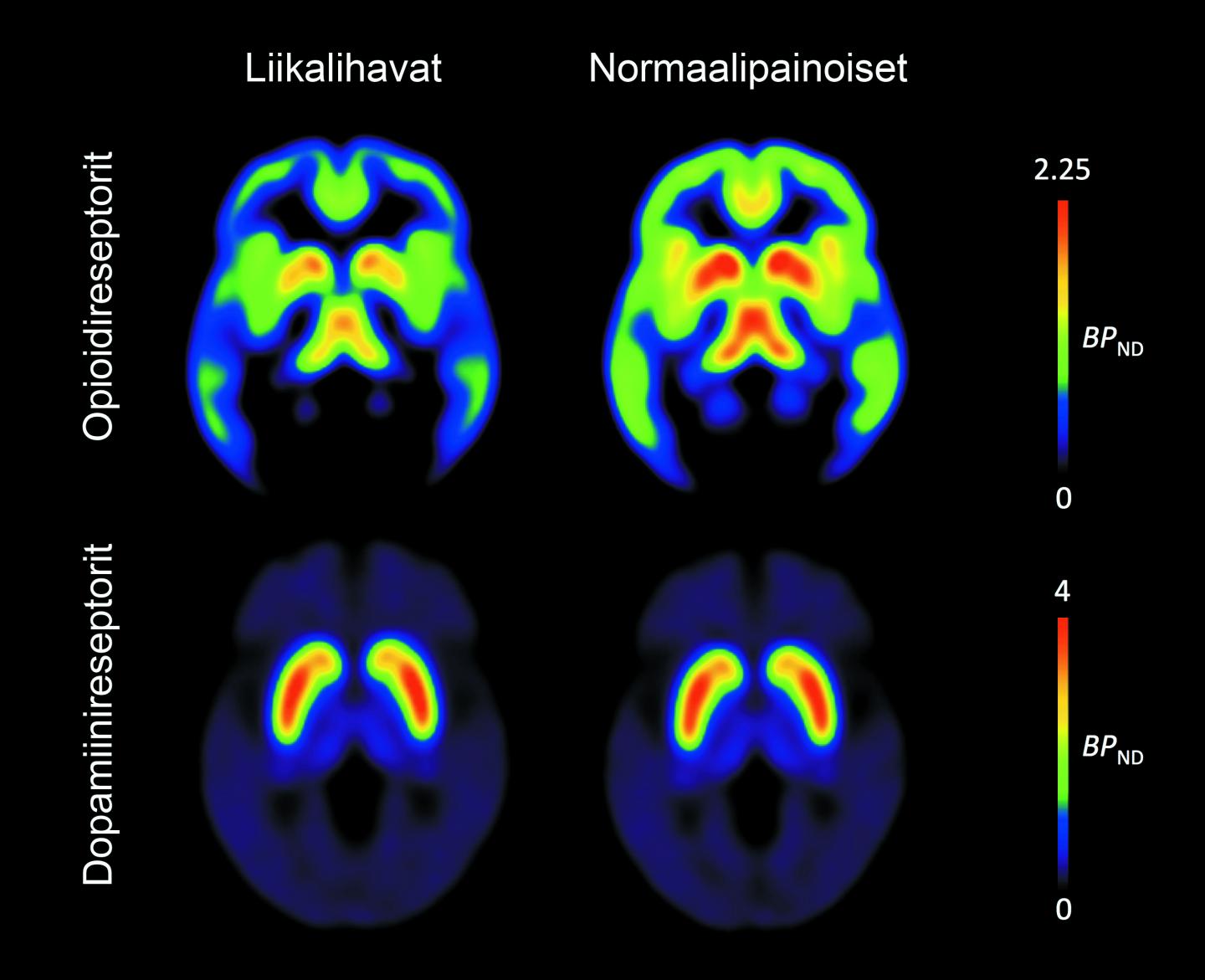
New Evidence Links Obesity to the Brain’s Addiction Pathways
 New research published this week in the Journal of Neuroscience describes the mechanisms that link obesity to addiction pathways in the brain. Researchers from the University of Aalto in Finland used PET (positron emission tomography) scanning to map the density of opioid and dopamine receptors in the brains of women with severe obesity and women without it.
New research published this week in the Journal of Neuroscience describes the mechanisms that link obesity to addiction pathways in the brain. Researchers from the University of Aalto in Finland used PET (positron emission tomography) scanning to map the density of opioid and dopamine receptors in the brains of women with severe obesity and women without it.
They found that the women with obesity had fewer μ-opioid receptors in parts of the brain related to motivation, pleasure, and rewards. But they found little difference in dopamine receptors.
Lead author Henry Karlsson said:
Our findings highlight how obesity is associated with brain-level molecular changes. It is possible that the lack of brain’s opioid receptors predisposes the obese individuals to overeating to compensate decreased hedonic responses in this system.
The patterns of alterations they found in these receptors are distinctly different than the patterns seen in people with addiction and substance abuse disorders, even though some of the same pathways are involved in both conditions. The result in obesity may be that people are driven by alterations in neurotransmitters to seek more food .
Clearly, obesity may be a neurologic disease as well as a metabolic disease.
Click here to read the study.
Purple Haze All in My Brain, photograph © Silla Rizzoli / flickr
Subscribe by email to follow the accumulating evidence and observations that shape our view of health, obesity, and policy.

March 06, 2015 at 9:50 am, Susan Burke March said:
Which came first, the chicken or the egg? Looking forward to further research to see if…”Behavioral and pharmacological strategies for recovering opioidergic function might…” be possible “to curb the obesity epidemic.”
March 06, 2015 at 5:05 pm, Ted said:
You’re right, Susan. More questions than answers.
March 06, 2015 at 9:55 am, Joe Gitchell said:
Fascinating, Ted–but don’t we need to be worried about causality with sort of analysis? I’m too lazy to read the full study, but chicken or egg on brain changes, right?
Still, an important reminder that we don’t have “systems” within our bodies (e.g., circulatory, digestive, etc), our bodies are AMAZING integrated systems. The assumption should be on linkage, not surprise when one is found.
March 06, 2015 at 5:07 pm, Ted said:
You’re right, Joe. The authors are quick to point out that this study says nothing about causality. It’s a complex system under study and we’re only scratching the surface of understanding.
March 06, 2015 at 11:26 am, Anne Fletcher said:
I’m no neuroscientist, but I’m wondering how if the difference in the very obese women is the cause or the result of their obesity. Wouldn’t we need a longitudinal study to tease this out?
March 06, 2015 at 5:08 pm, Ted said:
Anne, you are correct to point this out, as the authors do in their summary. Much work remains to be done.